A Senate inquiry into university governance has heard claims that the Tertiary Education Quality and Standards Agency (TEQSA) is failing to monitor the standard of university degrees.
The assertion has been made by a group of more than 200 ‘old-school’ academics known as Public Universities Australia, with the group claiming that universities are “soft marking” and passing most students regardless of the standard they have achieved and that this is leading to a “dumbing down” of the nation.
Claiming that there is widespread plagiarism and use of AI among students, the group called for oral or supervised written exams to “determine what a student does in fact know and can do”.
“There is ongoing slippage of academic standards with failure by TESQA to contain that slide’’, the group said in a scathing submission to the Senate education committee.
“There is degraded assessment … (and) increased risk from artificial intelligence”.
“Universities … tend to pass and graduate most students irrespective of the level of education actually achieved”.
“There are manifestly worsening gaps in graduates’ basic knowledge and skills”.
“This is nothing less than a dumbing down of the entire country”.
The academics accused universities of enrolling international students who struggle to speak English.
The academics are 100% correct. The explosion of international students has driven the downgrading in standards.
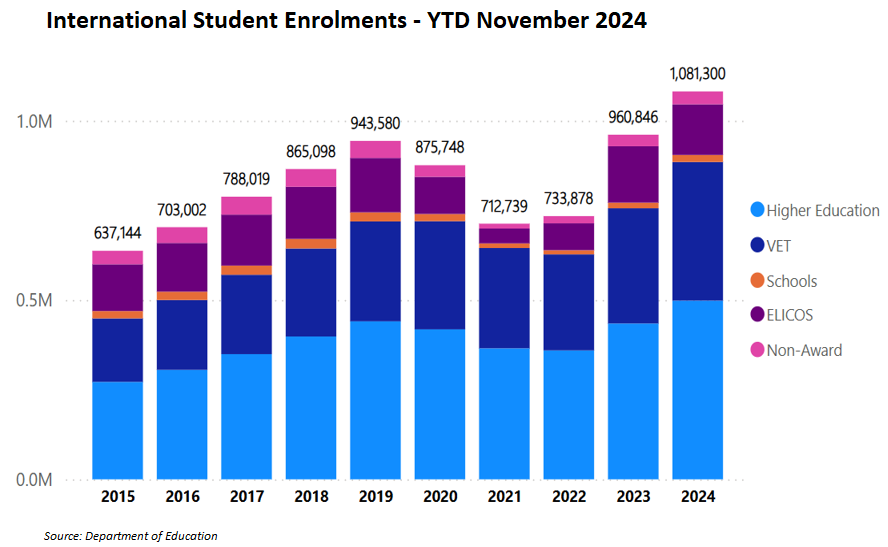
The Guardian’s Caitlin Cassidy last year documented mass cheating across Australia’s universities.
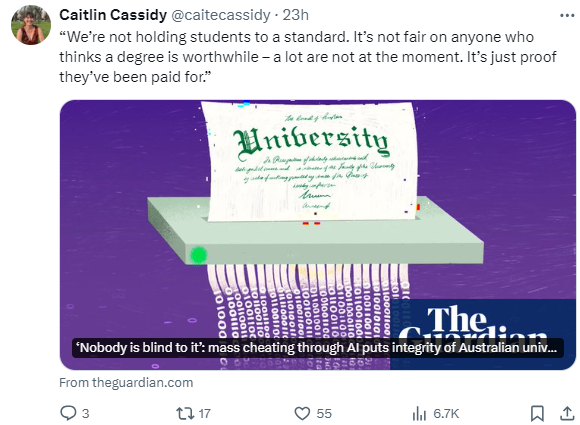
Cassidy also reported that academics working at Australia’s universities were precluded from failing poorly performing international students because it risked the sausage-factory business model:
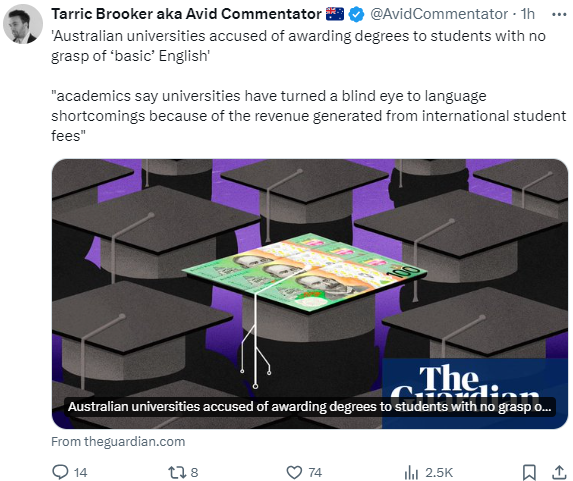
Domestic students have also been forced to help non-English-speaking students complete their courses through group assignments. Some tutorials have even been conducted in foreign languages, degrading the experience for local students.
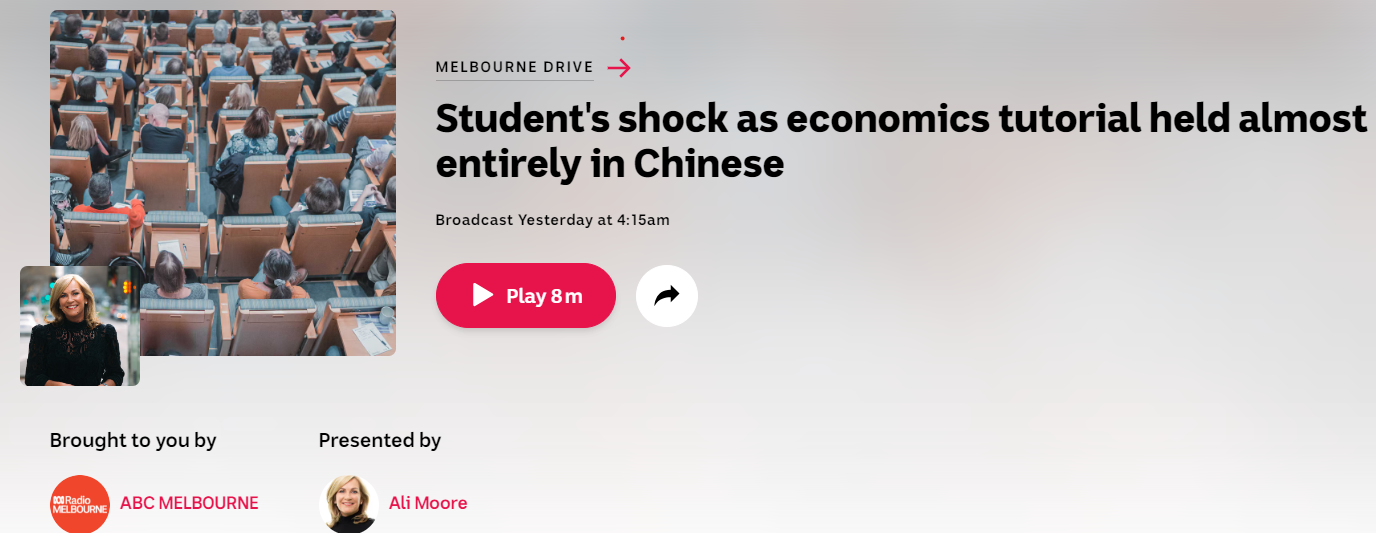
The group’s claims have been rejected by Universities Australia CEO Luke Sheehy, who claims that Australian universities maintain high standards and are globally recognised for their quality.
“We reject claims that students are ‘soft marked’ or that graduates are less competent than in the past’’, he said.
“All students, including international students, must meet entry requirements, including English proficiency”.
“Universities have clear policies to maintain academic integrity and student success’’.
Luke Sheehy might want to examine how those university rankings are calculated.
The University of Melbourne is considered Australia’s most prestigious university globally. In 2025, it ranked 47th in the Times Higher Education Reputation Rankings.
The following graphic shows the scoring for the University of Melbourne, Australia’s top-ranked institution:
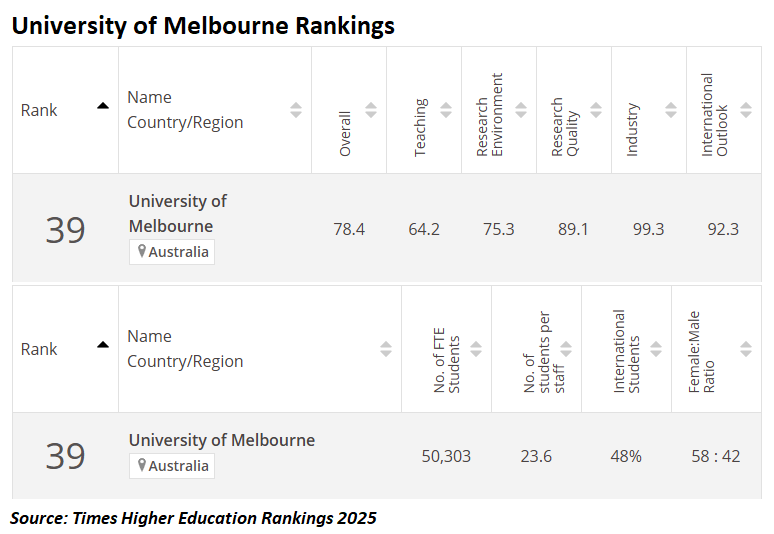
Melbourne University ranked poorly on teaching (64.2) but highly on research and internationalisation.
Melbourne University’s student-to-staff ratio is also abysmal (23.6), and it has one of the world’s highest concentrations of international students (48%).
Not surprisingly, Melbourne University has lingered at, or near, the bottom of student experience surveys for years.
Earlier this month, the AFR reported that Melbourne University had also experienced a significant increase in academic misconduct cases involving international students.
In the University of Melbourne’s latest academic misconduct report, written in July 2024 and released recently under an FOI request, 75% of reported academic misconduct cases in 2023 involved international students, despite them making up about 42% of total students…
Herman Chan, principal advocate at Academic Appeal Specialist, noted, “Australia’s top universities have lower entry barriers than their global counterparts”.
“Compared to other top universities worldwide, getting into Australia’s leading universities is relatively easier”…
The same can be said for Sydney University, Australia’s second-highest-ranked university.
As illustrated below, 51% of enrolments at Sydney University are international. Sydney University performs poorly on the most important metric—teaching—scoring just 53.2 out of 100.
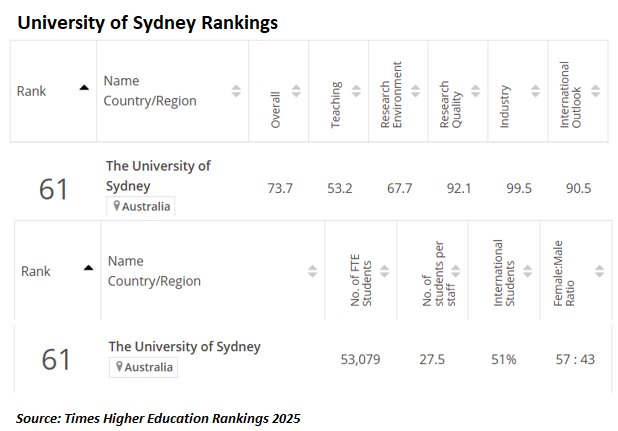
The number of students per academic staff member is also ridiculously high at 27.5.
80% of misconduct (read cheating) cases at Sydney University involve international students:
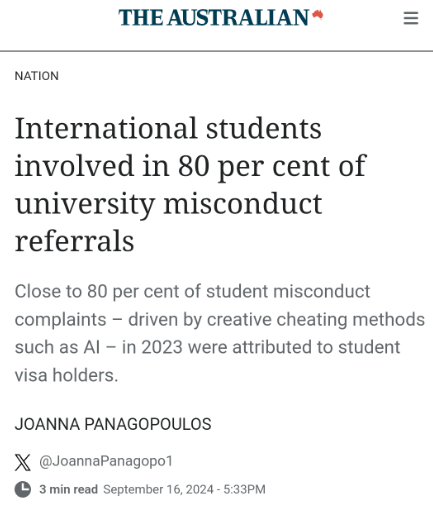
Again, this is NSW’s highest-ranked ‘bluestone’ university, whose pedagogical standards have been eroded by an over-concentration of international students.
What other evidence is required to prove that record volumes of international students have badly eroded Australian education standards?
Australia’s universities have the highest proportion of international students in the developed world, and the rankings reward them accordingly. The system is a complete farce.
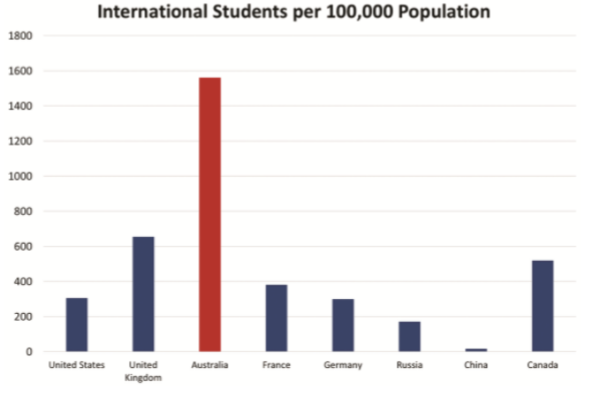
Source: Salvatore Babones (2019)
Running low-quality student visa mills for maximum throughput was never in the national interest.
Pedagogical standards and the experience and welfare of local students have been destroyed.

